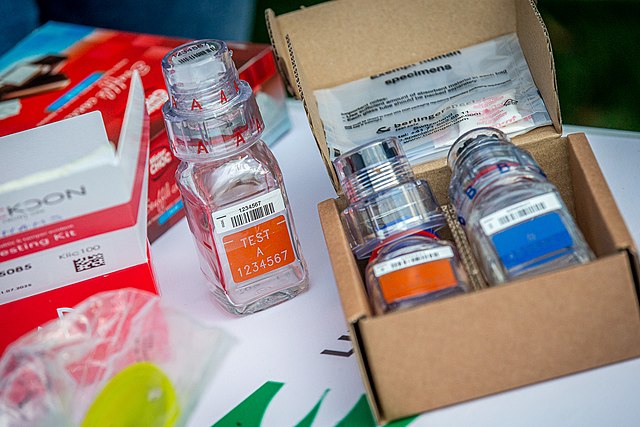In competitive sports, doping is the use of banned athletic performance-enhancing drugs by athletic competitors, as a way of cheating. As stated in the World Anti-Doping Code by WADA, doping is defined as the occurrence of one or more of the anti-doping rule violations set forth in Article 2.1 through Article 2.11 of the Code. The term doping is widely used by organizations that regulate sporting competitions. The use of drugs to enhance performance is considered unethical, and is prohibited by most international sports organizations, including the International Olympic Committee. Furthermore, athletes taking explicit measures to evade detection exacerbate the ethical violation with overt deception and cheating.
Hicks and supporters at the 1904 Summer Olympics
Ilona Slupianek in 1981.
Controversial athlete Floyd Landis, shown here at the 2006 Tour of California, triggered a public scandal when caught doping to help his cycling.
Urine doping sampling security bottles
Doping in baseball has been an ongoing issue for Major League Baseball (MLB). After repeated use by some of the most successful professional baseball players in MLB history, these banned substances found their way to the collegiate level. At the junior college level, due to lack of funding and NCAA drug testing, the abuse of PEDs is most common, but they are also an issue in Division I, II and III.
Alex Rodriguez has admitted to using performance-enhancing drugs from 2001–2003. MLB suspended him for 211 games after he was found to be using HGH.





